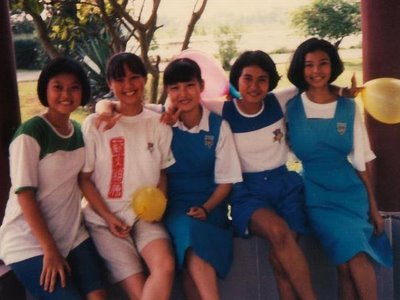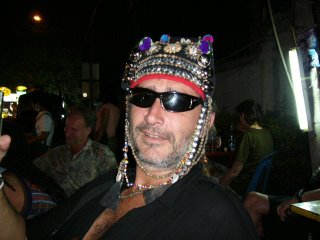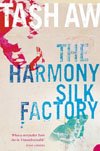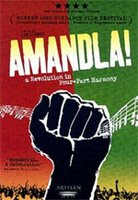6 years ago, I took the morning train at 5.55am from Bangkok to Aranyaprathat. I remember well there were only a few people on the train. For me, it was an unforgettable train journey. It was the first time I travelled on a third class train. On the third class train, wooden benches,babies with searching eyes, peasants with ebony skin are what you get along the train journey to your next destination.
Recently, I took the afternoon train at 1.00 PM from Bangkok to Aranyaprathat because I couldn’t make it in the morning. The journey was a bit of nostalgia but this time it was jam packed with people. I anxiously fell asleep while the train was rattling on. I was anxious about whether I would manage to cross the border on time.
The train arrived on time. It was 6.00 PM. I had no idea what time the Thai-Cambodian border would close but I knew it wouldn’t close at 4.00pm just like what the officer at the tourist Info Counter at the train station told me. The sky started turning into the light hue of gray. Without a moment to waste, I hopped on to the first motorbike taxi that came into sight. It was really comforting that the driver is a female so that I could lean on her back tightly while she was zooming at great speed straight to the border. I found myself having fun despite the anxiety.
The border still looked very much like the border I crossed 6 years ago except that now there are a few new, well polished white buildings, which looks completely out of place in places like Poipet, the forever red dirt-propelling Cambodian border town which was rated as one of the most dangerous places in Cambodia. The funny thing is that these buildings which serve as hotel cum casino are either in Thailand or Cambodia. They are cleverly situated in between Thai and Cambodian border. It is like a cruise ship sailing off to international water so that law no longer confines gambling.
So, I got my passport stamped at the Thai border before I walked across the ‘international land of casino hotels’ and landed myself at the Cambodian border. I could easily walk past the immigration checkpoint into Cambodia but I didn’t because there is no need to. Look at Poipet, who wants to spend time in Poipet unless one has a mission to accomplish. Yes, I had a mission to accomplish; I was trying to track down Amy. Amy is a Chinese-American who was in Poipet to work as a volunteer for a NGO.
She wrote to me via email the name of the hotel she stayed and her mobile phone but I didn’t call her cos I knew I could handle Poipet. Thank goodness there was a God-sent Cambodia angel who assisted me since I arrived at the Thai border. He was helpful without wanting anything from me. That was very beautiful and comforting.
I hopped on to one of the many motorbike taxis. If I was at the wrong place at the wrong time, I could have been abducted and sent straight away to a brothel just like many children and women in Camdodia, who were sold to the brothels by their parents, relatives or friends in the name of poverty. Of course, that didn’t happen to me. I had fear but I wouldn't let fear to stop me. I was sent to Ngee Heng Hotel instead, where Amy stayed. I bumped into Amy when I arrived. Later, I went to knock on her door but she wasn't there.
Next morning, I went to knock on Amy’s door but still no answer from her. So, I ventured out to the dirt propelling streets of Poipet on my own. I felt terribly uneasy to be on my own because I knew I was in Cambodia, a very depressing country that will unveil some sort of human sufferings right before my very eyes especially when I am unprepared to take it all in. Thank goodness, it hadn’t happened just yet.
There is only one main dirt road in Poipet. Many two-story bungalows or shop houses flank this few kilometers-long road. Many of these bungalows serve as budget hotels. Anything that hides behind these bungalows and shop houses is a slum, where the poor of the poor live.
I discovered a well-hidden market place where I spent one hour trying hard to finish my white noodle soup that left a very weird taste in my month. I quickly went back to the hotel just to cocoon myself in my comfortable room and waited for Amy to knock on my door. Knocking on my door she did. I opened the door and saw this energetic and all cheerful Amy smiling away. `Gosh, what kind of strength she has to keep on smiling in a place like Poipet.’ I thought.
So, we went to the market area again. We were savouring on Cambodian-style somtam and other snacks. As we ate on, a few skinny-as-insect and skinhead elderly women came begging. When they started to wai to us, we just couldn’t turn them away.
According to Amy, many of them were diagnosed with AIDS. In Poipet alone, the AIDS cases are alarmingly high. They are basically waiting for Death to knock on their doors because the government hospital can’t really afford to provide them medication.
After that, Amy took me to the office of Cambodian Hope Organization, the NGO where she volunteered. There, Mr.Chomno, the founder of the NGO was there to greet us. So, I threw him a few questions about what the NGO has been doing in Poipet.
According to him, Cambodian Hope Organization initiates development programmes such as offering free basic skills training to the locals. Once the people manage to master the skills, they will be able to make a decent living to help themselves to generate income with their new skills.
CHO is a Christian organization that envisions a complete network of strong, hope-filled communities, where all formerly vulnerable individual will enjoy adequate physical, psychological and spiritual welfare. One of the many development programmes is carpet weaving. The NGO workers will go to the villages to train the villagers how to weave small pieces of carpets, which later will be collected and send to Bangkok to be assembled into big carpets. During my visit, 28 families who participated in this programme had managed to send their children to schools.
Apart from that, CHO also promotes child rights and works with other NGOs and authorities to stop child trafficking in Cambodia, not to mention promoting primary health care and HIV/AIDS care and awareness via its outreach programmes.
CHO also arranges home-based vegetable cultivation programme by providing training, demonstration and follow up support. Last but not least, CHO provide spiritual guidance via evangelism and mixed media message.
Later, Mr.Chomno took us to Hope and Health Food Restaurant, which is located near to the office. All the proceeds from the restaurant will go to the hospice in Poipet. There, we met an American couple who were there having dinner with their 3 children and at least 5 adopted Cambodian children. The couple was eating at one table while all the kids were having their meal on another table next to them.
After the meal, one of the adopted boys came over and gave his newfound mother a hug. At that very moment, I could few the presence of love. According to the couple, they would build an orphanage to take in more children. Suddenly, Poipet became beautiful and filled with so much love, joy and hope. I guess that was the reason that kept Amy smiling in Poipet.
On Sunday morning, we went to the restaurant again to attend the Sunday mass. It was such a moving experience to be there to hear beautiful songs of worship sung in Khmer. The melodic strumming sound of guitar accompanied by soothing sound of choir-like singing gently sipped into everyone’s ear and heart. Suddenly, my eyes were brimmed with tears of joy because I knew they have called Jesus their Savior. I know very well that God will see them through the many trials of life just like how He has been seeing me through.
Looking at their faces, I knew Christianity was not forced down their throats. After all, I don’t believe that you can force people to believe what you believe. It has to be one’s own free will.
That Sunday afternoon, I left Poipet with hope and renewed strength to face the constant madness in Bangkok again- the traffic jam and the exhaust fume.
Those of you who are interested to be a volunteer or to make donation, you can always drop a line or two to Mr. Chomno via e-mail:
chomno@yahoo.com or snail mail: House 144A, Group02, Palalai Village, Poi Pet Commune, O’Chrov District, Banteay Meanchey Province.

















 The story is about the life of the infamous Chinaman named Johnny Lim, a textile merchant, as well as the owner of the Harmony Silk Factory, which serves as a front for his illegal businesses. The novel also deals with his marriage to the stunning Snow Soong, his involvement with the communists, and his friendship with Peter Wormwood, a wandering Englishman.
The story is about the life of the infamous Chinaman named Johnny Lim, a textile merchant, as well as the owner of the Harmony Silk Factory, which serves as a front for his illegal businesses. The novel also deals with his marriage to the stunning Snow Soong, his involvement with the communists, and his friendship with Peter Wormwood, a wandering Englishman. Amandla in Xhosa means power. This word was repeatedly uttered, screamed and sung throughout the documentary called Amandla! A Revolution in Four-Part Harmony directed by Lee Hirsch. This documentary won the Audience Award and Freedom of Expression Award at the 2002 Sundance Film Festival.
Amandla in Xhosa means power. This word was repeatedly uttered, screamed and sung throughout the documentary called Amandla! A Revolution in Four-Part Harmony directed by Lee Hirsch. This documentary won the Audience Award and Freedom of Expression Award at the 2002 Sundance Film Festival.
